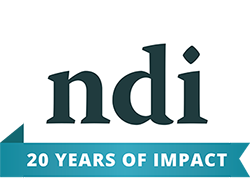Earned Income Tax Credit
Earned Income Tax Credit (EITC) is the federal and state income tax credit available to low- and moderate-income (LMI) working families and individuals. Often called the nation’s best, long-term economic stimulus program, EITC gives working families the boost they need to make rent or mortgage payments, buy needed food, medicine and other essentials, improve their quality of life and contribute to the economy.
What is the EITC?
Often called the nation’s best, long-term economic stimulus program, EITC is the largest federal support program for low-income individuals and families and helps over 15 million low-income wage earners each year. To claim the Earned Income Tax Credit, a tax return must be filed with the IRS with proper documentation.
There are eligibility requirements to claim the EITC. These change yearly and it’s important to check the irs.gov website for updates.
- Have a Social Security number that is valid for employment
- Have earned income
- Be at least 19 and not a full-time student or at least 25
- Have earned no more than $21,430* in the 2021* calendar year if single with no children
For more eligibility details, including married couples and investment income impact visit irs.gov
3.6 Million
Number of tax returns prepared by volunteers in 2017, providing over $4 billion in refunds.
$273
Average savings for a taxpayer as a result of accessing free tax preparation.
What is Free Tax Preparation?
There are many free tax preparation options available. Each program and service has different eligibility options and must be verified individually for qualifications. However, on average, households with an adjusted gross income (AGI) of $66,000 or less will qualify for free tax preparation and filing. Eligibility criteria can change from year to year, so check the options for eligibility with the service you choose prior to utilizing, and always be sure to check http://irs.gov.
3.6 Million
Number of tax returns prepared by volunteers in 2017, providing over $4 billion in refunds.
$273
Average savings for a taxpayer as a result of accessing free tax preparation.
Why It’s Important to File a Tax Return
The Internal Revenue Service (IRS) administers the EITC. To receive a tax refund from the IRS, you must file a tax return. The IRS and the National Disability Institute conducted focus groups with individuals with disabilities around the country and found that people with disabilities were afraid they would lose public benefits (Supplemental Security Income and Medicaid) if they filed a tax return and received a tax refund.
- EITC and any federal tax refund do not count as earned income and does not impact eligibility for SSI or any other federally funded benefits, including Medicaid
- The average amount of EITC receive nationwide is about $2,411
- Across the country, it is estimated that nearly one million individuals with disabilities do not file for the EITC
- An individual may claim the EITC for a three-year retroactive period if eligible and did not know about the EITC when filing past tax returns
- In addition to the federal EITC, some states have their own EITC. See which states offer the tax credit.
What is a refundable tax credit?
The EITC is a refundable tax credit which means that even when an individual has no tax liability, they will receive a tax refund. If a person should owe taxes, this credit would eliminate or reduce what they owe. EITC gives working individuals and families the boost they need to make rent or mortgage payments, buy needed food, medicine and other essentials, improve their quality of life and contribute to the economy. To claim the Earned Income Tax Credit, a tax return must be filed with the IRS with proper documentation.
Free Tax Preparation Services
People with Disabilities
Free tax preparation introduces financial education to the disability community both nationally and locally.
Job Seekers
Free tax preparation expands services in organizations who help job seekers in an easy and cost-effective way.
Questions?
National Disability Institute works to improve the financial health and well-being of people across the spectrum of disability.
If you have questions or want more information about our projects, please call (202) 296-2040 or email info@ndi-inc.org.



